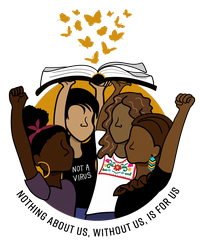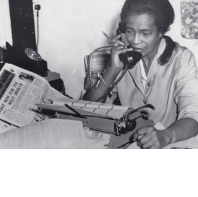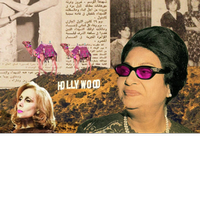2025-26 Course Offerings
Below is a tentative list of courses offered in CRES for the 2025-2026 academic year. As always, please check the Schedule of Classes as the official source for the quarter, instructor, and meeting times. Courses may be added as they become available.
View courses and Outside Electives as a spreadsheet here.
Jump to quarter: Fall | Winter (coming soon!) | Spring (coming soon!)

CRES 10 - Intro to CRES
Examines the concept of race, followed by an investigation of colorblindness, multiculturalism, and post-racialism. Race and ethnicity are examined as historically formulated in relationship to the concepts of gender, sexuality, class, nationalism, indigeneity, citizenship, immigration, and inequality.
Marisol LeBron
GE: ER

CRES-EDUC 121: The Struggle for K-12 Ethnic Studies
Critical analysis of the movement for K-12 ethnic studies in historical and contemporary time periods with a particular focus on the Liberated Ethnic Studies Model Curriculum.
Tricia Gallagher-Geurtsen
GE: ER

*new* CRES 122: Decolonial Intersectionality
This course applies the concept of intersectionality within feminist thinking to an exploration of the limits and possibilities of decolonization and the ways in which gender, race, and indigeneity inform both colonial domination and resistance.
Iokepa Casumbal-Salazar
GE: CC | Social Movements

*new* CRES 129: Black Marxism
Marxism has been a foundational framework for the Black radical tradition. This course offers a theoretical framework to key texts in Marxism, and an overview to the problems, insights, contexts, and interventions that Black intellectuals have deployed in conversation with it.
Nick Mitchell
GE: ER | Black Studies minor | Transnational

CRES 170: Intro to Arab American Communities
Situates Arab American studies and the study of Arab and Muslim diasporic communities originating from the region within a broader global racial order and through an intersectional approach.
Jennifer Mogannam
GE: ER | Transnational | Social Movements

CRES 185: Race, Gender, Science
In this course, we will think critically and creatively together about the ways in which science as a practice and a way of knowing gives rise to particular and perhaps peculiar ways of experiencing bodies as individual, raced, gendered, and even 'specied'. We will explore a variety of issues in contemporary science and technology, with an emphasis on body and embodiment – that is, ways of knowing and experiencing the body within and beyond science, and within and beyond race and gender.
Kriti Sharma

*new* CRES 188X: Reggaeton (Special Topics)
Marisol LeBron
From making songs in makeshift studios in public housing to the mainstage at Coachella, reggaeton has gone from a criminalized subculture to one of the most dominant musical genres in the world. Artists like Bad Bunny, Rauw Alejando, and Daddy Yankee are among the most listened to artists on the planet boasting billions of streams despite singing almost exclusively in Spanish. How did we get here? This course traces the history of reggaeton music and culture between Puerto Rico and the United States in order to explore questions of race, gender, sexuality, capitalism and empire. What does it mean for a Black musical genre rooted in spaces of diaspora that have been touched by colonial violence to “crossover” and become pop music? What can we learn about politics and pleasure from queer and femme artists and fans that are challenging the misogyny and cisheteronormativity that have long marked the genre? Can party music be a vital site of resistance? Ultimately, this course will help students understand the complex history and politics embedded in the music we often take for granted as it plays in our earbuds, spills out of widows, and booms from passing cars.
CRES-FMST 190V: Marxism and Feminism
Explores critically the intersections and crisis points between feminism and Marxism as bodies of thought, theoretical formations, and forms of historical inquiry.
Nick Mitchell
Prerequisite(s): CRES 10, CRES 100 and CRES 101; satisfaction of the Entry Level Writing and Composition requirements. Enrollment is restricted to senior CRES majors.
